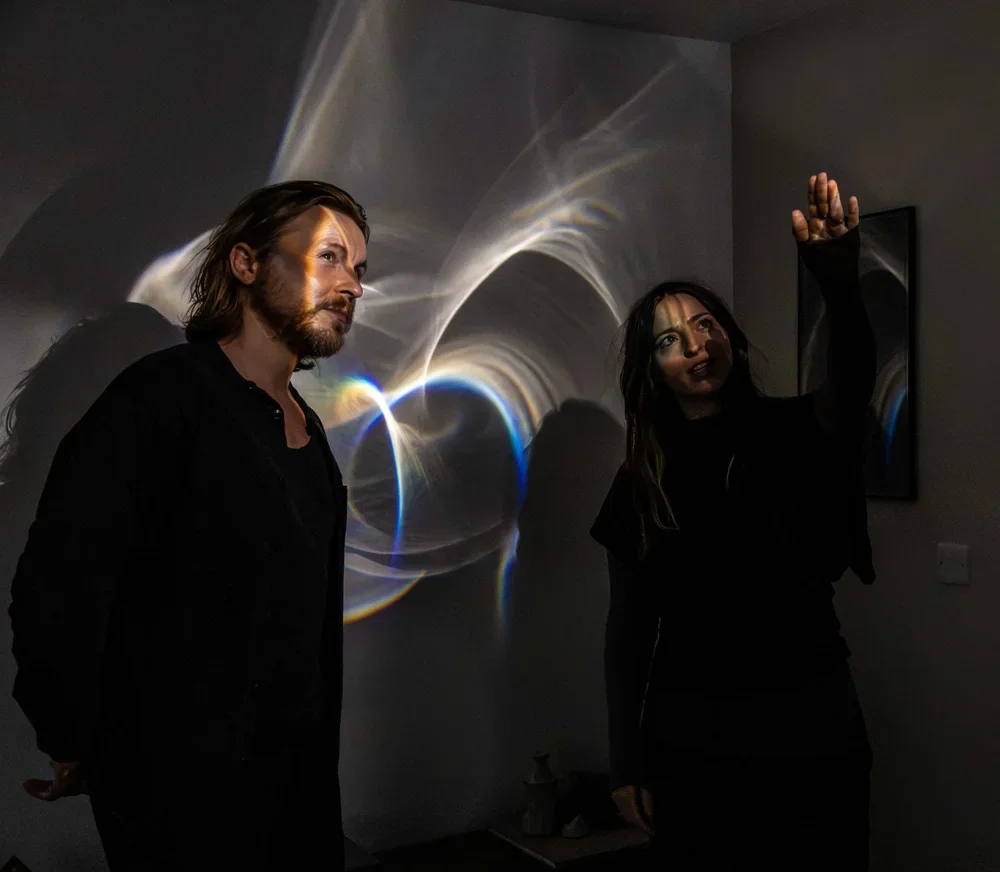Shuster + Moseley explore the dual nature of light - at once physical and psychophysical - through a sustained enquiry into mediation, exposure and spectrality. Through constellations of optical lenses and large-scale prismic glass sculptures, their practice engages light’s pharmakological potential to fragment and dimensionalise experience.
Within a context of attentional conditioning and mediated saturation, their work suspends the lens and screen as interfaces of perceptual enframing, deconstructing the photographic apparatus to create instruments of spectral articulation and durational environments of exposure.
Claudia Moseley MRSS
MA Environmental Anthropology, University of Kent
BA Fine Art & Textiles, Goldsmiths College
Edward Shuster FRSA MRSS
PhD, European Graduate School, The Pharmakology of Light-Time
Research in Geometry, Optics and Architecture (Farjam Scholarship), Prince’s School; MA Esoteric Philosophies, University of Exeter


